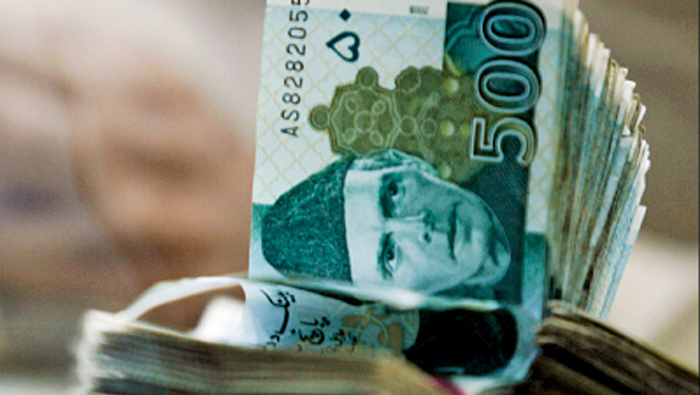
Karachi : The gap between the Pakistani rupee's value in the interbank and open markets is rising again, creating a black market where the dollar is being traded at a much higher price, the Dawn reported.
The development comes as the Pakistani Rupee gained strength, jumping from a record low of 276.58 on Feb 3 to 259.99 on Friday in the interbank market. In the open market, the rupee closed at 268 against the dollar, as reported by Dawn News. In the black market, however, the local currency is now changing hands at significantly higher rates of up to Rs300 per dollar.
The Dawn News further reported that the Pakistani Bankers said the rupee's strength was not because the government or the central bank was influencing the exchange rate, but was due to a strict policy of not allowing the opening of letters of credit (LCs) for imports.
"The exchange rate is stable as the State Bank of Pakistan [SBP] does not allow outflow of dollars and importers can't buy from banks," Atif Ahmed, a currency dealer in the banking market, said.
Bankers said importers had now resorted to the black market to buy dollars, which is leading to a stronger US currency in that market. The exchange companies have asked the government to allow them to settle LCs of up to $50,000 in imports but to no avail.
Pakistan will need another IMF bailout in June, says the ex-SBP chief, as per the report by the Dawn News.
Meanwhile, Murtaza Syed, a former acting and deputy governor of the SBP told Bloomberg that Pakistan would need another IMF deal in June as it had to pay $10-$12 billion in the next six months while it required up to $35bn for the next three years for debt servicing.
He said Pakistan needed debt relief otherwise, the common people would have to bear the burden.
It is believed in the financial circle that the delay in the IMF loan instalment worth $1.1bn could trigger uncertainties on the economic front and the dollar would be on a rising trend once again.
Zafar Paracha, general secretary of the Exchange Companies Association of Pakistan, said that in the black market, the dollar was being traded at Rs 285 in Karachi, Rs 290 in Peshawar and up to Rs 295 to Rs 300 in Kabul.
He said the liquidity in the open market was gradually declining as the inflows had reduced.
"Until last week, we were depositing about $10 million in banks, which has now dropped to $5m per day," he said. "The dollar is once again going towards the illegal markets since the difference of rate is too high."
Bankers fear this emerging black market could dent expectations of higher remittances on the back of the removal of an artificial cap on the rupee's rate, which earlier helped narrow the gap between interbank and open markets.